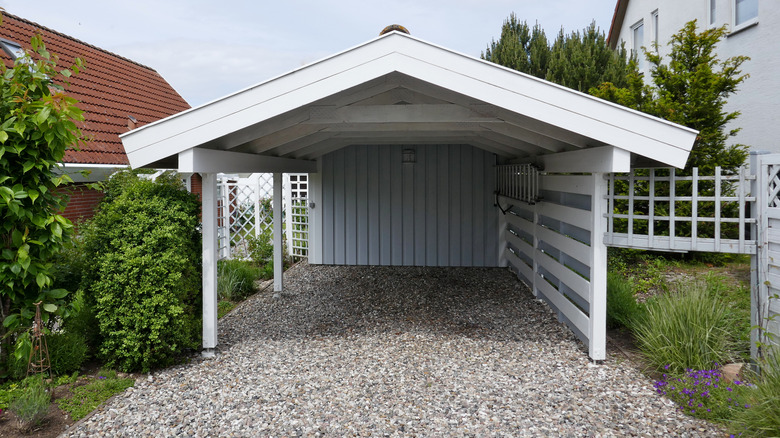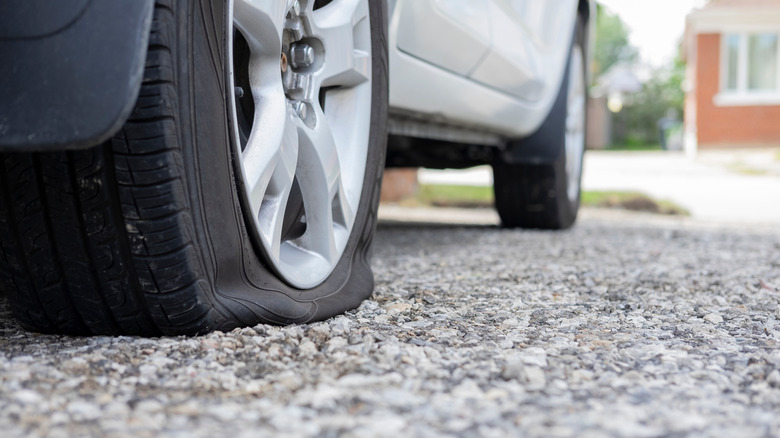If You Have A Gravel Driveway, You Need To Be Raking It Regularly
Maintaining your gravel driveway goes beyond just aesthetics; it plays a crucial role in preserving its functionality and safety. Regular raking is necessary to prevent debris accumulation, keep drainage flowing properly, and keep the surface even so that cars and people can use it safely. Gravel driveways are popular for more than a few reasons — not just because they have a nice, rustic aesthetic. For one, gravel is cost-effective, and installing one is a relatively quick and simple process.
Gravel driveways are also highly permeable, which benefits areas that have poor drainage. The tiny rocks allow water to pass through easily, which keeps the risk of flooding down and saves you the trouble of installing additional drainage systems. Lastly, using gravel for your driveway is considered to be a sustainable practice that also lowers your carbon footprint — this is especially the case if you're using rock that has been sourced from local quarries.
Raking should be a part of your routine home maintenance
Raking your driveway serves multiple important purposes, and plays a significant role in effective drainage. Leaves, twigs, and other debris can accumulate on the driveway surface, which can cover and clog the gaps between the gravel, thus impeding the water flow. Raking your driveway and removing debris ensures the unobstructed flow of water, minimizes puddling, and reduces the risk of flooding during heavy rainfall. Raking also helps prevent weed growth. Gravel driveways can be a fertile ground for weed seeds to take root and flourish, especially if organic materials like leaves are left to decompose on the surface. Regularly raking and removing the detritus will disrupt the growth of weeds and prevent them from calling your driveway their new turf.
Lastly, raking is important for both pedestrians and drivers. A well-maintained driveway that has a smooth, even surface reduces the likelihood of tripping when people are using it as a walkway. Keeping it nice and flat also minimizes the risk of developing potholes, which can do some serious damage to your tires.

